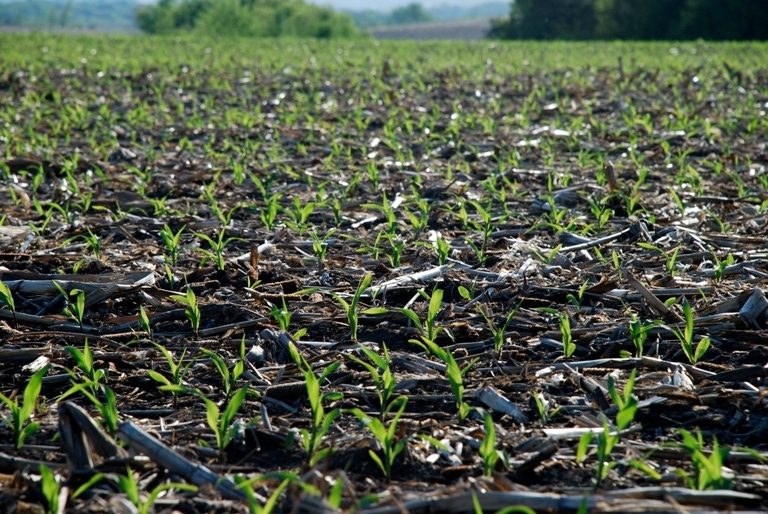April 12, 2012

The warmer-than-normal fall, winter and spring should raise soil nitrogen concerns for growers, according to the Iowa Soybean Association (ISA) On-Farm Network. More biological activity occurs when soils are warmer. As a result, more of the nitrogen in the soil is converted to nitrate. This is true for all soil nitrogen, whether it’s from commercial fertilizer, manure or organic matter present in the soil.
The ISA On-Farm Network says if typical spring rainfall combines with the increased soil nitrate, producers could see above-average nitrogen loss as water moves through the soil and off the field through tile drainage before the crop can take it up. Normal Iowa spring rainfall could still cause above-average nitrogen losses even if producers wait until after planting to apply nitrogen.
Peter Kyveryga, ISA On-Farm Network senior research associate, says soil temperatures in Iowa in January and February were above the long-term average. The warming trend continued with very little snow cover and above-average air temperatures. In March, the average soil temperature in Iowa was running more than 10 degrees F. higher than the long-term average. Short-term forecasts call for more above-average temperatures, meaning producers should watch for potential nitrogen losses.
Corn will usually take up only 60-70% of the total nitrogen it needs by tasseling time. This means nitrogen loss in June and early July can still have a major impact. The ISA On-Farm Network says rainfall frequency and intensity will be key factors to watch over the next few weeks.
You May Also Like



